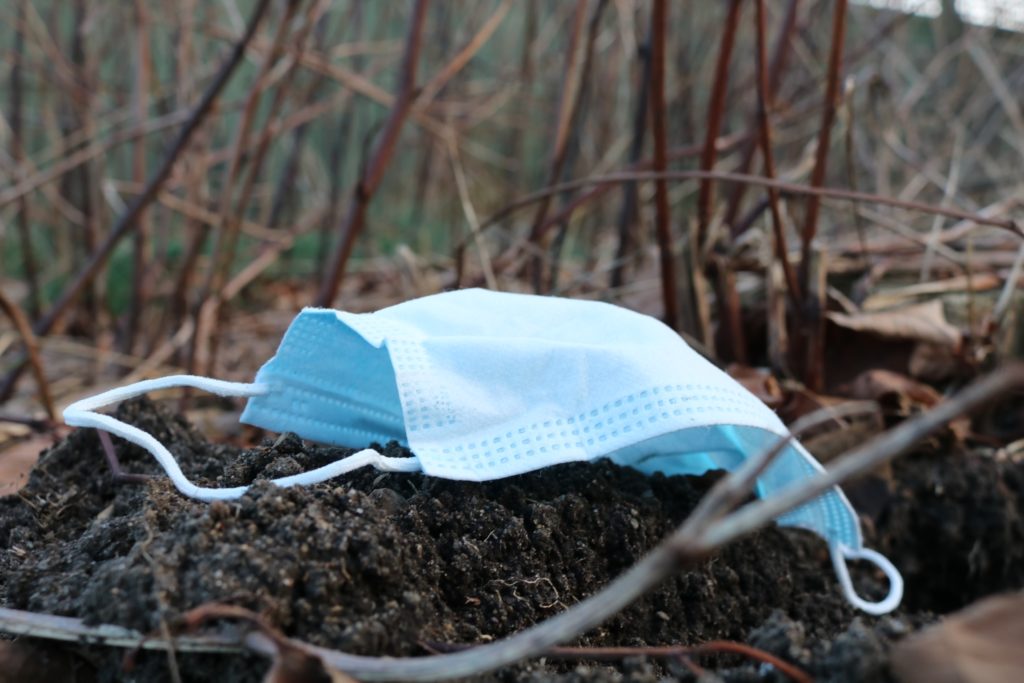
By Kaitlin Woolery
Photography Editor
Reducing waste is an important issue to the Saint Michael’s College community. To help prevent the spread of COVID-19, faculty, staff, and students are required to wear face masks on campus. Ingrid Boland ’22 has noticed several single-use masks being disposed of improperly. “I’ve noticed masks on the ground more so on campus than at home. When I noticed masks on the ground it was on sidewalks near cars and I don’t know if there could be a correlation there,” she said.

Vermont is one of several states that recently passed a single-use product law. This law prohibits businesses from using single-use products such as plastic bags, foam containers, and plastic straws. According to The Vermont Department of Environmental Conservation, “Single-use items, paper, and packaging make up almost 1/3 of Vermont’s trash.” This law’s intent is to help protect the environment from harmful wastes.
According to the National Institute of Health, disposable single-use face masks are produced from micro-plastic polymers such as polypropylene, polyurethane, polystyrene, polycarbonate, polyethylene, or polyester. Some of the materials used in the masks’ layers which are meant to shield us from germs and water vapor are similar to those found in disposable diapers.
Clay Williams, assistant professor of environmental studies and science says that in addition to litter reducing the aesthetic appeal to our environment, improper disposal of masks may harm the wildlife.“They can get tangled in wildlife and pose a choking hazard to wildlife on land and in the water,” said Williams. He added, “They break down into micro-plastics which can harm aquatic life.” Humans may also be impacted by the disposing of these masks. “They likely aren’t able to be recycled in our conventional system, and thus would end up in the landfill, ocean or environment after use. They are likely to release toxins into the environment as they break down,” said Williams.
Wearing disposable face masks is an effective way to filter aerosols that may contain the virus. However, proper disposal of the masks in designated trash bins is necessary to prevent unsightly litter on campus as well as protecting our environment, waterways and wildlife.
“It made me frustrated at not only the effects on the environment in terms of the fact that the masks do not decompose, but also in the people’s lack of following the policies to help prevent the virus. It also made me wonder the reason this might be happening,” said Boland.

